'The Pakistani military has encouraged and supported terrorist organisations, especially in Kashmir, as a means of waging proxy war against the Indian military and the country's superior economic resources.'
'The evidence is irrefutable with the recent killing of 46 paramilitary troops being just the latest example.'
Eamon Murphy -- a professor at Curtin University in Perth, Australia, is the author of The Making of Terrorism in Pakistan, Historical and Social Roots of Extremism and Islam and Sectarian Violence in Pakistan.
A long-standing observer of the phenomenon of terrorism in Pakistan, Professor Murphy spoke to Rediff.com's Nikhil Lakshman in the wake of the suicide bombing in Pulwama and the encounter with terrorists in the same district in the Kashmir valley four days later.
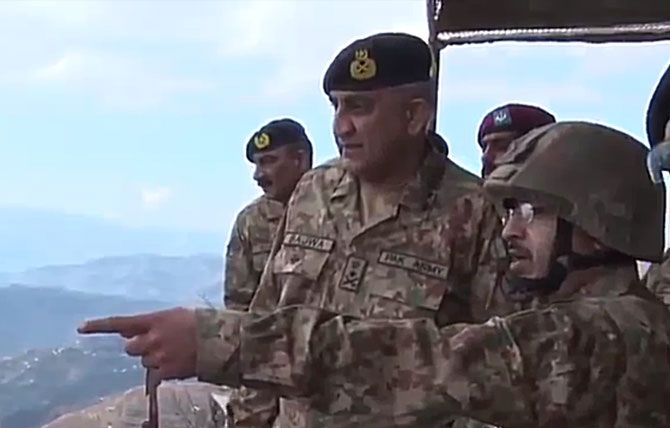
You wrote The Making of Terrorism in Pakistan. What did you discover when you researched your book? What are the origins of extremism in Pakistan? And how did you arrive at those conclusions?
The main conclusion I reached from the research was how complicated are the origins of Islamic terrorism in Pakistan. Attempting to explain Islamic extremism purely as a religious phenomenon simply does not work. Social, economic and historical factors were crucially important.
The research also demonstrated that by far the greatest number of victims of Islamic extremism have been members of Pakistan's minority Islamic sects. Thousands of innocent Muslim men, women and children have died of sectarian violence in Pakistan.
I base my conclusions on my own research into South Asian history and politics stretching over a period of 45 years and drawing from the numerous published and unpublished research publications by South Asian and foreign scholars. I have travelled, lived and researched in South Asia on numerous occasions and have interviewed many politicians, journalists and other citizens.
Did you discover any links between terrorism or violent extremism in Pakistan to the Pakistan army, to the Directorate of Inter-Services Intelligence, to what has been described as the Deep State in Pakistan?
Was the Pakistan army and its arms the marionetteer and these organisations the marionettes?
Yes -- the Pakistani military, especially the controversial shadowy Inter-Services Intelligence, has played a key role in encouraging, training and funding terrorist organisations.
It has proved to be a very dangerous game, however, as many of these extremist organisations have been impossible to control and some have turned against the Pakistani State.
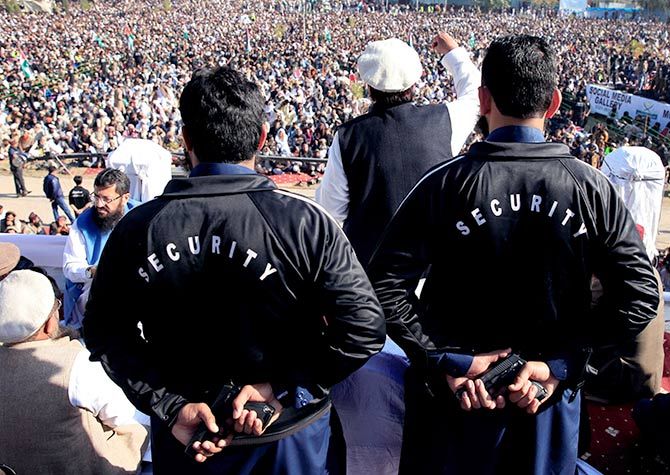
There is a widespread belief that Pakistan's army, especially the ISI, has dexterously used terrorism as an instrument of State policy. Do you believe this is true and did you unearth evidence to support such a belief? What is your understanding?
Most definitely -- the Pakistani military has encouraged and supported terrorist organisations, especially in Indian-administered Kashmir, as a means of waging proxy war against the might of the Indian military and the country's superior economic resources.
The evidence is irrefutable with the recent tragedy of the killing of 46 paramilitary troops at Pulwana in Kashmir being just the latest example.
The terrorist organisation Jaish-e-Mohammed, which planned and organised the complex terrorist operation, operates openly in Pakistan. Its leader Masood Azhar, has been allowed to operate freely in Pakistan.
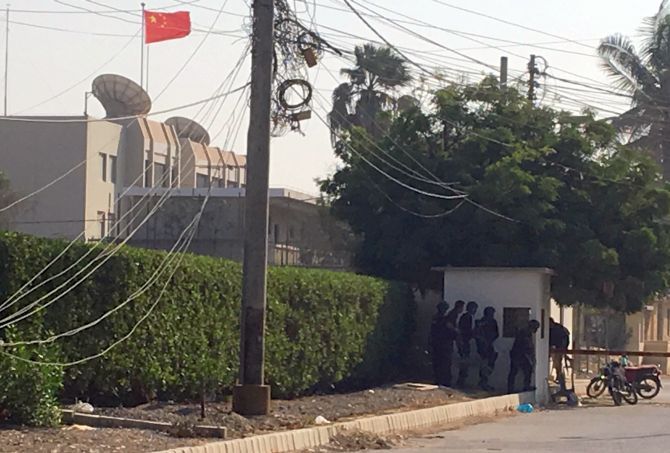
When, in your opinion, did the phenomenon of terrorism in Pakistan emerge? Did its origins lie in the first war of Afghanistan in the late 20th century after the then Soviet Union invaded that country, provoking a rallying cry in the Muslim world to rid Afghanistan of the Communist infidels?
To understand fully the origins of terrorism in Pakistan one must look to the political developments during the 19th century, particularly the rise of the Muslim League, the growing tensions between Hindus and Muslims as well as between Sunnis and Shias, and the movement for a separate Muslim State.
It was during this period that the dangerous mix of religion and modern politics had emerged.
The Afghan jihad, however, played a highly crucial role in the growth of terrorist organisations. During the jihad, the power, patronage and prestige of the ISI rose dramatically as ISI officers controlled the vast sums of money which came from the United States and Saudi Arabia to mujaheedin groups to fight the Soviets.
One consequence of the highly successful jihad against the Soviets was the belief among the Pakistani military, especially among ISI officers, that the same tactics used in Afghanistan could be employed to wage a proxy war in Indian-administered Kashmir tying down huge numbers of military and paramilitary forces.
After the defeat of the Soviets, the ISI could call upon a large number of battle hardened, heavily armed and fanatical fighters eager to wage jihad against the Indian 'infidels' in Kashmir.
Where did these terror organisations find its recruits? In the mosques and madrassas or elsewhere?
What was the method used to convince the recruits about the 'cause'?
Was it the proposition of establishing a true Islamic State or was the proposition less lofty offering the poor a route out of their circumstances?
The terrorist organisations certainly found a rich source of recruitment from the numerous madrassas and mosques established along the Afghanistan Pakistan border during the Afghan jihad.
These new madrassas were funded by Saudi Arabia and the other Gulf States and preached a form of uncompromising, fundamentalist, doctrine very alien to the inclusive, tolerant syncretic Sufi Islam which has been dominant until recently in the Indian subcontinent.
These new madrassas were attractive to the poor because they provided cheap education and living for students. Many of these became cannon fodder for the rival mujaheedin groups.
I must emphasise, however, that the long-established apolitical madrassas in Pakistan have been highly critical of terrorism particularly the use of suicide bombers.
Also many of the most successful terrorist leaders have been educated in elite private schools and universities.
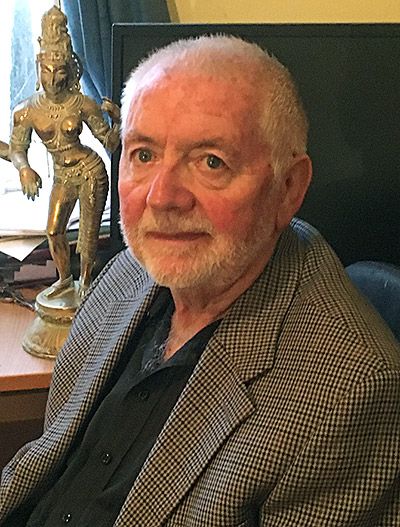
Do you believe while the poor and uneducated may have made up the ranks of the early recruits to terrorism, there is now the concern that terrorist organisations in Pakistan have increasingly begun to make inroads in Pakistan's universities, convincing engineers and the like to enlist in the 'cause'?
Most definitely. One of the most disturbing aspects of the more extreme terrorist organisations has been its appeal to middle-class well-educated professionals such as engineers, doctors and IT professionals.
For example, in May 2015, sectarian terrorists stopped a bus in a residential suburb of Karachi, cold bloodily killing at least 43 passengers and wounding 30 others, both men and women. The passengers, who were commuting to work, were Ismailis, followers of the tiny pacifist Ismaili sect.
One of the killers, Saad Aziz, came from a well-off middle-class family and had received an excellent education in elite institutions. He was a former hard-working student popular with boys and girls with a good sense of humour who enjoyed tennis and football.
He had previously demonstrated little interest in religion, and his relatives and friends are unable to explain why he was attracted to the brutal Islamic State and its nihilistic ideology.
There is also the fear that Pakistan's terrorist organisations will utilise the likely demographic catastrophe -- with the economy in its perilous state, the government may fail to satisfy the aspirations of the country's youthful population (which is expected to hover around 13 million people by 2025) -- to mobilise large armies of jihadis and cause upheaval not only in Pakistan but across South Asia and elsewhere. Is this fear not real?
Extremism flourishes when there is a breakdown of law and order and economic chaos as has been shown in Iraq and Syria with the rise of Islamic State. Pakistan is facing a severe financial crisis along with other major problems.
It is in the best interests of India that Pakistan and other South Asian States become more stable, prosperous and self-confident.
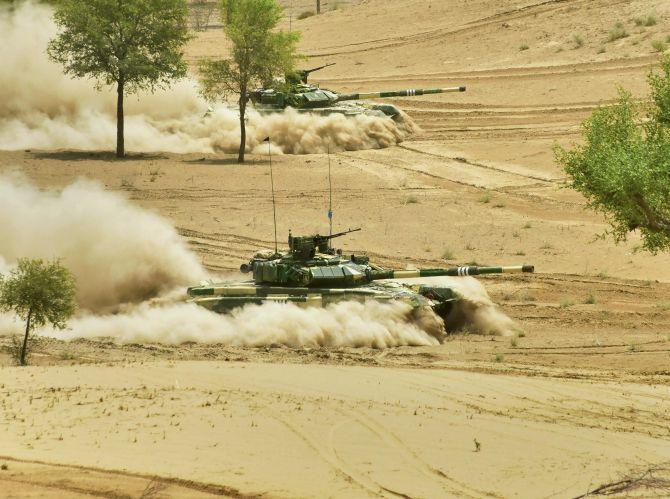
What threat do Pakistan's terrorist groups pose to India, considering that all such outfits must have an enemy and what better adversary than a neighbouring State against whom Pakistan has waged three wars?
Pakistan's terrorist groups pose little direct threat to India beyond committing of random wanton attacks.
The danger, however, is that India will understandably over-react to the acts of terrorism committed on its soil and will initiate a disastrous war with Pakistan, possibly leading to the use of nuclear weapons.
Could a surge in violent extremism led to the collapse of the Pakistan State and initiate chaos in the region, especially eastwards?
Does the Pakistan army, in your opinion, remain the boy with his finger in the dyke so to speak, a bulwark against the collapse of the traditional State?
I don't think that the Pakistani State, despite its many problems, is a failing State nor will it collapse, at least in the foreseeable future.
Like its Indian counterpart, the Pakistani military is a highly trained, professional and disciplined organisation that helps ensure stability.
Pakistani civil society has also proved to be remarkably resilient. Democracy has long struggled in Pakistan, but still survives.
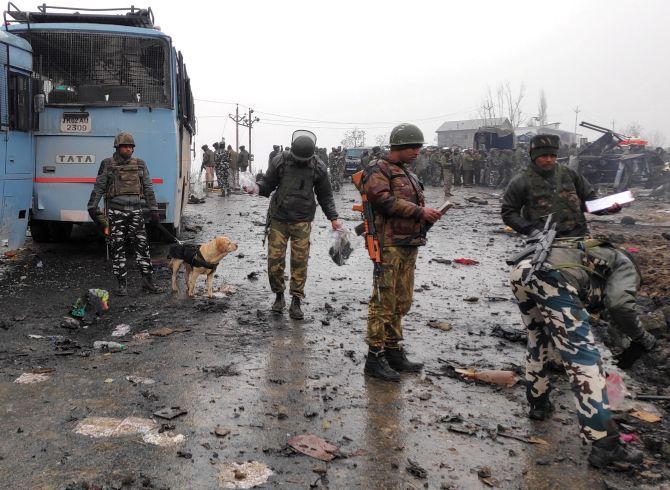
What about the challenges the Internet pose where terror recruitment is concerned?
Where once these violent organisations had to make their pitch at mosques, madrassas and elsewhere, now videos on the Internet and the lure of establishing an Islamic caliphate can do the needful.
Is this phenomenon unstoppable? What can be done to halt this process of extremism?
What do the Internet behemoths like Facebook, Google, Twitter etc need to do in this regard?
One of the most striking features of the rise of Islamic State and other terrorist groups is the highly effective use its followers make of the Internet especially social media.
For example, the killing of Burhan Wani, the 22-year-old charismatic commander of the Pakistani-based Hizbul Mujajideen, on July 8, 2016 led to renewed violence in Kashmir. Wani had become the poster boy and a hero to many frustrated, angry young Kashmiris.
Wani had built up a huge following in Kashmir through posting videos on WhatsApp and Facebook with his bearded comrades wearing military clothing and brandishing automatic weapons.
I don't see how it is possible to strictly censor the Internet in a democratic country. One can only hope that the Internet provides a forum that concerned citizens use to promote informed opinion based on evidence and to advocate peace.
As an observer of terrorism in a country like Pakistan, do you believe the greatest threat to liberal democracy comes from the spectre of an Islamic caliphate that draws to its ranks disenfranchised young Muslims around the world?
How can the thought leaders of Islam counter this challenge? Can it ever be quelled?
Or will the Huntingtonian proposition of a clash of civilisations play out in the next decade?
I doubt very much that disenfranchised young Muslims pose a serious threat to liberal democracies. There have been problems, of course, but most Muslims living in the West have been peaceful and are adapting to their new homelands like other non-Christian migrants.
Unfortunately, it is a small minority of extremists that receives the most media coverage.
It is true that leaders of Islamic communities need to speak out more strongly against extremism, but this often requires courage.
To be honest, I find the Clash of Civilisations theory to be nonsense. Christians and Muslims have live side by side peacefully for centuries as indeed have Muslims with Hindus, especially in the Indian subcontinent.
Finally, how will such challenges play out among the largest conglomeration of Muslims in the world -- in Pakistan, India, Bangladesh -- who may be aggrieved and discontented? Will we see upheaval unless the governments in these countries recognise the dimensions of the discontent and address it?
All South Asian governments are facing huge problems in trying to resolve eliminate poverty, exploitation, over-population and environmental degradation.
Peace between India and Pakistan would bring enormous benefits, especially to Pakistan, but statesmanship of a high calibre will be necessary to break down the barriers of hate and distrust that have been built up ever since the two nations became independent in 1947.
It is a matter of great urgency then that India and Pakistan find it political solution to the ongoing conflict between the two nations, especially the standoff over Kashmir.
Fortunately, both India and Pakistan have a very lively independent electronic and print media which can play a crucial role in combatting extremist propaganda and helping the peace process.
A final comment: It has been very inspiring reading accounts of the numerous peace activists, investigative journalists, human rights workers and ordinary citizens who often, at great personal risk, have worked to promote peace and harmony in both Pakistan and India.
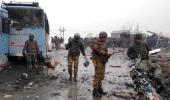
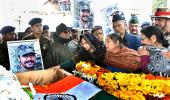
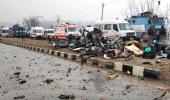
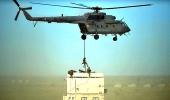
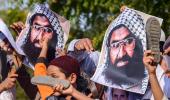






 © 2025
© 2025